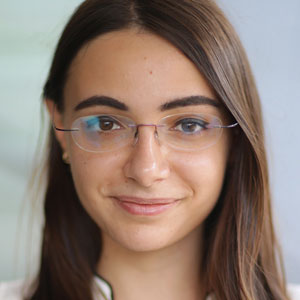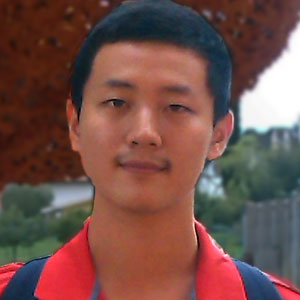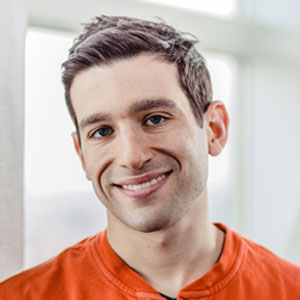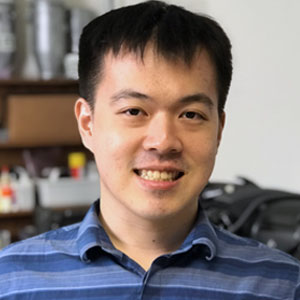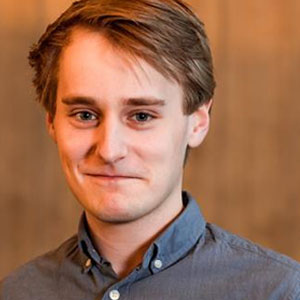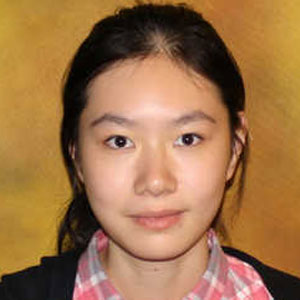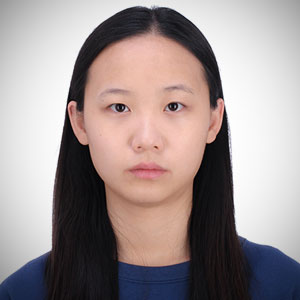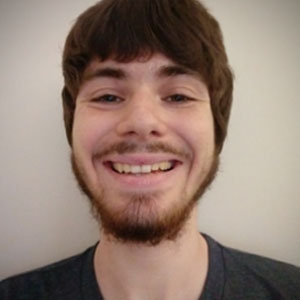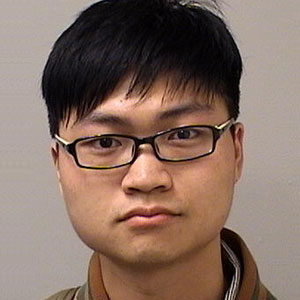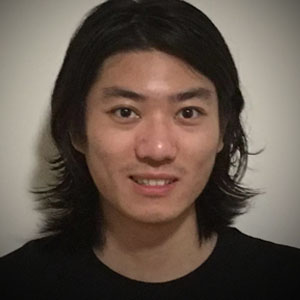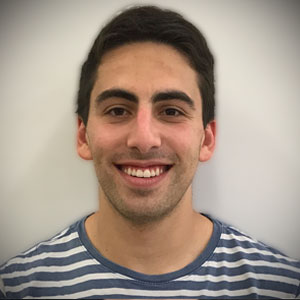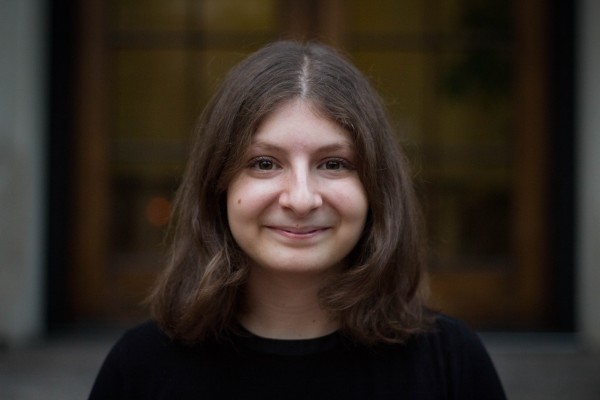Graduate students from the department have been selected to receive scholarships. The diverse group is a mix of those new to Columbia and students who have received fellowships for the year.
Google Fellowship
The Google PhD Fellowship Program was created to recognize outstanding graduate students doing exceptional and innovative research in areas relevant to computer science and related fields.
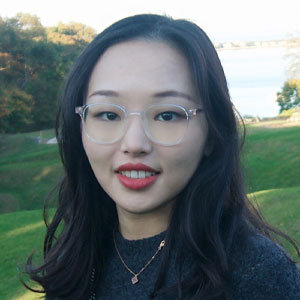 Yiru Chen
Yiru Chen
Yiru Chen is a fourth-year Ph.D. student who works with Associate Professor Eugene Wu. Her research interests are database systems, human-computer interaction, and data exploration. Her work focuses on improving database usability by automatically generating database interfaces for interactive data analysis.
Chen graduated from Peking University with a B.S. in computer science summa cum laude and a B.A. in Economics in 2018. She enjoys cycling and playing the violin whenever she has free time.
NSF Graduate Research Fellowship Program (GRFP)
The GRFP is a five-year fellowship that recognizes and supports outstanding graduate students in NSF-supported STEM disciplines who are pursuing research-based master’s and doctoral degrees.
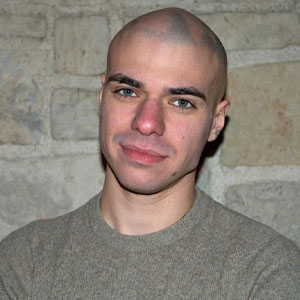 Philippe Chlenski
Philippe Chlenski
Philippe Chlenski is interested in developing and applying computational techniques to biological problems, particularly machine learning for microbial dynamics. He is a second-year PhD student in the Pe’er lab. Prior to Columbia, he worked for two years at the Fellowship for Interpretation of Genomes at the Argonne National Lab.
Chlenski graduated in 2018 from Yale University with a Bachelor’s degree in mathematics and philosophy. He also holds an Associate’s degree in liberal arts from Deep Springs College.
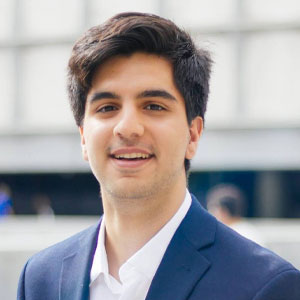 Sam Fereidooni
Sam Fereidooni
Sam Fereidooni is interested in investigating semantic representations through the lens of both cognitive neuroscience and natural language processing. He particularly hopes that the eventual findings from his work will lead to ameliorated treatments for those who suffer from language processing and production disorders. He is a first-year PhD student in the Theory group, and he is advised by Professor Christos Papadimitriou.
Fereidooni graduated in 2021 from Yale University with a B.S. in Cognitive Science, and a B.S. in Statistics and Data Science. Sam’s undergraduate studies were supported by the Questbridge Foundation National College Match scholarship, the Richter Undergraduate Research fellowship, and the Yale Club of New York City Charles S. Guggenheimer scholarship.
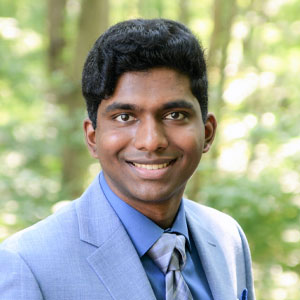 Shashaank N
Shashaank N
Shashaank N is a first-year PhD student who will be advised by assistant professor David Knowles. His research interests are in computational genomics and neuroscience, with a focus on auditory processing disorders in the brain.
Shashaank recently graduated with an MS in Computer Science from Columbia University in 2021. He completed a BS in Interdisciplinary Studies from Western Kentucky University (WKU) in 2019 and received the Scholar of the College academic award.
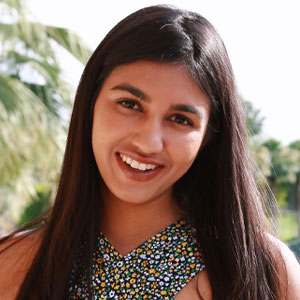 Meghna Pancholi
Meghna Pancholi
Meghna Pancholi is a second-year PhD student advised by Associate Professor Simha Sethumadhavan. She is interested in cloud computing, systems security, and microservices. Before Columbia, Meghna was an undergraduate researcher at Cornell University where she worked on improving the performance of microservices applications with machine learning techniques.
Meghna graduated from Cornell University in 2020 with a BS in Computer Science.
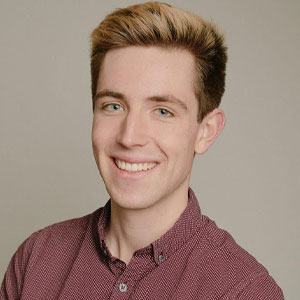 Clayton Sanford
Clayton Sanford
Clayton Sanford is a third-year PhD student working with Professors Rocco Servedio and Daniel Hsu on machine learning theory. The motivating goal of his research is to understand mathematically why deep learning performs so well in practice. Clayton’s work on the approximation capabilities of neural networks has been published at the COLT 2021 conference. He is a member of the CS Theory Group.
Clayton received an ScB in Applied Math and Computer Science with honors from Brown University in 2018.
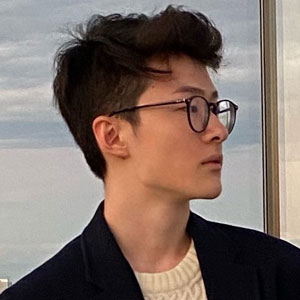 Sky Wang
Sky Wang
Sky Wang is an incoming first-year PhD student set to work with Assistant Professors Zhou Yu and Smaranda Muresan. His work focuses on natural language processing and he is interested in leveraging computational methods to understand social aspects of language and to use such insights in creating more effective and more equitable language technologies. He is particularly interested in the areas of situated dialogue systems, computational social science, and cultural analytics.
Wang graduated in 2020 from the University of Michigan with a B.S.E in Computer Science. He is a 2021 recipient of the University of Michigan’s EECS Undergraduate Outstanding Research Award and also received an honorable mention for the Computing Research Association Outstanding Undergraduate Research Award in 2021. He received a Best Poster award from the University of Michigan AI Symposium in 2018 and was recognized as a finalist in the NASA Goddard Space Flight Center Intern Research Fair in 2018.
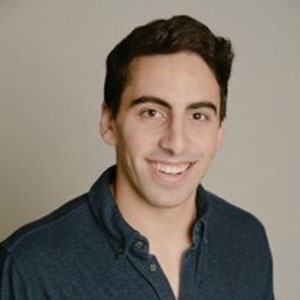 Joseph Zuckerman
Joseph Zuckerman
Joseph Zuckerman is a second-year PhD student in computer science at Columbia University, where he works in the System-Level Design group, advised by Professor Luca Carloni. His research interests include architectures, runtime management, and agile design methodologies for many-accelerator systems-on-chip.
Zuckerman contributes as one of the main developers to ESP, an open-source research platform for heterogeneous system-on-chip design. In 2019, he completed his S.B in electrical engineering at Harvard University, during which he completed internships at NVIDIA and the NASA Jet Propulsion Lab.
SEAS Fellowships
Columbia School of Engineering and Applied Sciences established the Presidential and SEAS fellowships to recruit outstanding students from around the world to pursue graduate studies at the school.
Blavatnik Fellow
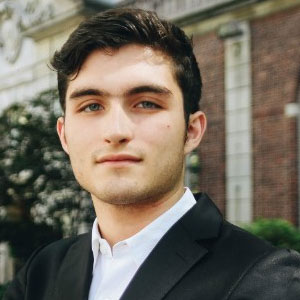 Sebastian Salazar
Sebastian Salazar
Sebastian Salazar’s research interests include Machine Learning and Ethical AI. At Columbia, his work will be focused on counterfactual predictions and actionability of Machine Learning models. He is a first-year PhD student who will be working under the guidance of Ansaf Salleb-Aouissi.
Sebastian graduated magna cum laude from Columbia University in 2021 with a B.S. in Applied Physics.
Dean’s Fellows
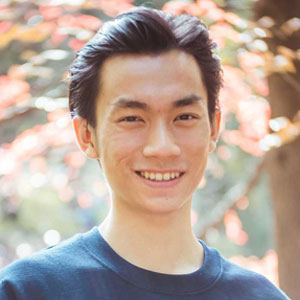 Huy Ha
Huy Ha
Huy Ha is an incoming first-year PhD student interested in computer vision, natural language processing, and robot learning. His research studies how embodied intelligence could combine information from different modalities (vision, language, interaction) to understand its environment, solve tasks, and assist people. He is advised by Assistant Professor Shuran Song and is a member of the Columbia Artificial Intelligence and Robotics (CAIR) lab.
Ha graduated in 2021with a BS in Computer Science from Columbia University. He was a Dean’s Fellow and received the Theodore Bashkow Award. He did research during the summer as a Bonomi Summer Scholar. During his free time, Ha likes to take photos, rock climb, bike, and train his two border collies for frisbee.
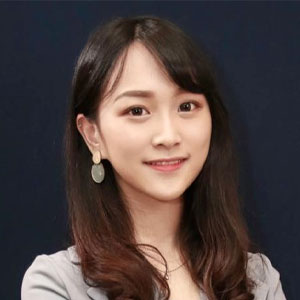 Yun-Yun Tsai
Yun-Yun Tsai
A first-year PhD student, Yun-Yun Tsai works with Professor Junfeng Yang. Her research interests are in security and artificial intelligence. In particular, she is interested in improving robustness over neural networks and machine learning (ML) algorithms so that they make fewer mistakes on malicious samples. She will work on research related to making AI applications less fragile against unusual inputs.
Tsai received a B.Sc. and M.Sc. degrees in computer science at National Tsing Hua University (NTHU) Taiwan in 2014 and 2018, respectively. Previously, she was advised by Professor Tsung-Yi Ho and Dr. Pin-Yu Chen from Trusted AI group, IBM Thomas J. Watson Research Center, NY USA.
Mudd Fellow
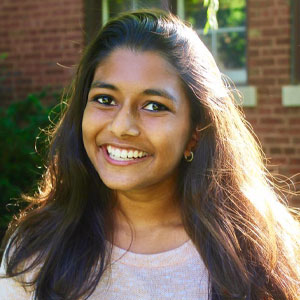 Anjali Das
Anjali Das
Anjali Das is a first-year PhD student who works with Professors Itsik Pe’er and David Knowles. Her research interest is in developing and applying machine learning methods to problems in genomics. Specifically, she is interested in the genetics of neurological diseases.
Das graduated from the University of Chicago in June of 2020 with a BS in statistics and a minor in computer science. After graduating, she worked as a data scientist at UChicago’s Research Computing Center before joining Columbia.
Graduate students from the department have been selected to receive scholarships. The diverse group is a mix of those new to Columbia and students who have received fellowships for the year.
J.P. Morgan 2019 AI Research PhD Fellowship Awards
The inaugural award supports researchers who have the skills and imagination to potentially transform the way we live and work.
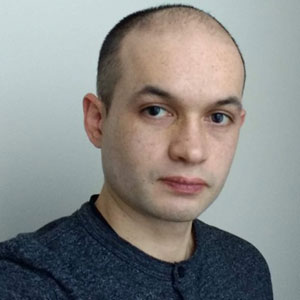 Juan D. Correa
Juan D. Correa
Juan D. Correa‘s work focuses on the theoretical and logical foundations of causal inference. Correa is a second-year PhD student who works with associate professor Elias Bareinboim in the Causal Artificial Intelligence Lab.
In 2019, he received a Best Paper Award at the 35th Conference on Uncertainty in Artificial Intelligence and an Outstanding Paper Award Honorable Mention at the 32nd AAAI Conference on Artificial Intelligence (2018). He graduated in 2017 with an MSc in Computer Science from Purdue University and a bachelor’s degree in Computer Engineering from Universidad Autónoma de Manizales in Colombia in 2011.
NSF Graduate Research Fellowship Program (GRFP)
The GRFP is a five-year fellowship that recognizes and supports outstanding graduate students in NSF-supported STEM disciplines who are pursuing research-based master’s and doctoral degrees.
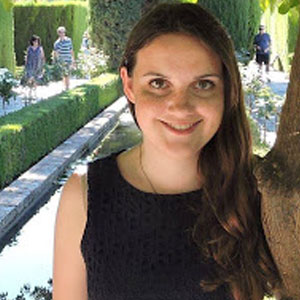 Emily Allaway
Emily Allaway
Emily Allaway is interested in implied semantics. In particular, she is interested in understanding stance and other types of meaning that are expressed but not explicitly stated in text. She is a third-year PhD student in the Natural Language Processing group under professor Kathy McKeown.
Allaway graduated from the University of Washington where she earned a BS in mathematics, a BS in computer science, and a minor in Ancient Greek.
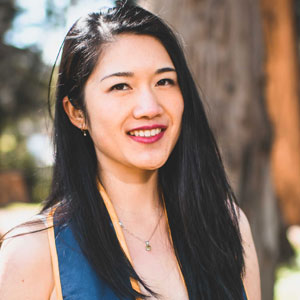 Vivian Liu
Vivian Liu
Vivian Liu’s research interests are in human-computer interaction (co-creating with AI), immersive technologies, and accessibility. She is a first-year PhD student set to work with assistant professor Lydia Chilton.
Liu graduated with general distinction from UC Berkeley in 2019 where she earned a B.A. in Computer Science, a B.A. in Cognitive Science, and a Certificate in New Media.
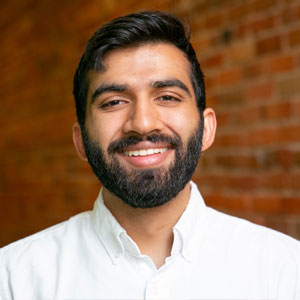 Sachit Menon
Sachit Menon
Sachit Menon’s research interests lie in machine learning and computer vision. He is especially interested in allowing computers to learn with less human supervision, as well as enabling them to generalize past the specific data they’ve seen (for example, by reasoning about uncertainty or causality). Menon is a first-year PhD student who will be advised by assistant professor Carl Vondrick. His graduate studies are supported by the NSF Graduate Research Fellowship and the Columbia Presidential Fellowship.
This year he graduated from Duke University with a BS in Mathematics and Computer Science with Highest Distinction. Menon’s undergraduate studies were supported by an Angier B. Duke fellowship (Duke’s flagship merit scholarship) and a Goldwater Scholarship (the most prestigious undergraduate scholarship in scientific fields).
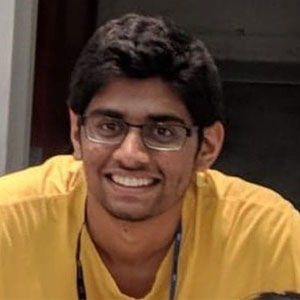 Shyamal Patel
Shyamal Patel
Shyamal Patel is a first-year PhD student interested in combinatorics and theoretical computer science. He will be joining the Theory group and will be supervised by associate professor Xi Chen and professor Clifford Stein.
Patel graduated from Georgia Tech in 2020 with a degree in computer science.
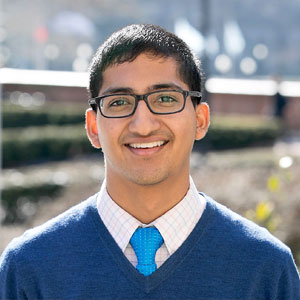 Abhishek Shah
Abhishek Shah
Abhishek Shah‘s research uses deep learning and optimization techniques to improve software security. He is a second-year PhD student co-advised by professor Simha Sethumadhavan and assistant professor Suman Jana.
Shah graduated in 2019 from Columbia University with a degree in computer science.
Qualcomm Innovation Fellowship (QInF)
The QInF is focused on recognizing, rewarding, and mentoring innovative PhD students across a broad range of technical research areas. The highly competitive program is open to PhD students in the Electrical Engineering and Computer Science departments from the top 24 US-based and Canadian schools. Only 13 two-member teams were awarded funding, out of 188 applications this year.
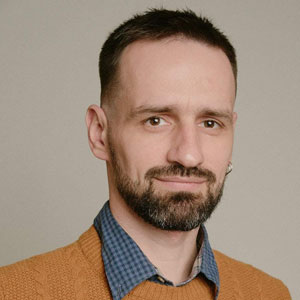 Evgeny Manzhosov
Evgeny Manzhosov
Evgeny Manzhosov is a second-year PhD student who works with professor Simha Sethumadhavan to develop secure and reliable systems. Prior to Columbia, he worked as Physical Design Engineer at Intel (2011-13), Apple (2013-16), and Cisco (2016-17).
Evgeny has BSc in Electrical Engineering and BSc in Physics from Technion – Israel Institute of Technology (2015) and completed an MSc in Electrical Engineering at Columbia University with an Award of Excellence (2019).
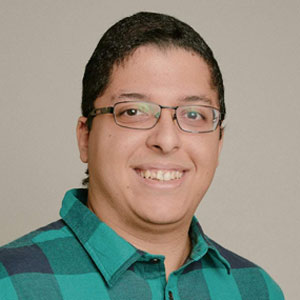 Mohamed Tarek
Mohamed Tarek
Mohamed Tarek’s research interests include systems security, microarchitecture design. and hardware support of security. He is a fourth-year PhD candidate under the guidance of professor Simha Sethumadhavan. His work on fine-grained memory safety, Califorms, is recognized with an IEEE Micro Top Picks Honorable Mention 2019.
Tarek received a B.Sc. and M.Sc. degrees in computer engineering at Ain Shams University, Egypt in 2014 and 2017, respectively. During his M.Sc. studies, he worked on using homomorphic encryption for secure data computations.
Cheung-Kong Innovation Doctoral Fellowship
The scholarship is set up to support doctoral studies at SEAS as part of the collaboration between Columbia Engineering (SEAS) and Cheung-Kong Graduate School of Business (CKGSB).
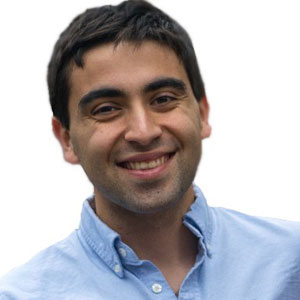 Keyon Vafa
Keyon Vafa
Fourth-year PhD student Keyon Vafa’s research focuses on probabilistic machine learning, where he works on applying probabilistic methods to deep learning with professor David Blei. He is especially excited by applications to text and the social sciences.
In 2016, Vafa was awarded an NSF GRFP fellowship and spent a year as a PhD student in the statistics department before transferring to the computer science department. He graduated from Harvard University magna cum laude with a bachelor’s in computer science and statistics in 2016.
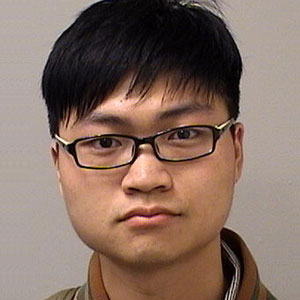 Chang Xiao
Chang Xiao
Chang Xiao is a fifth-year PhD student in the computer science department who works with associate professor Changxi Zheng. His research focuses on building human-computer interaction systems using computational methods and machine learning. He has developed methods in a range of applications and his research has attracted public interest, including media coverage from CNN, IEEE Spectrum, etc.
Chang received a BS degree in computer science from Zhejiang University in 2016 and is a recipient of the Snap Fellowship and a SEAS fellowship in 2019.
Dean’s Fellowship
The scholarship is a highly-selective fellowship offered to a small number of admitted students.
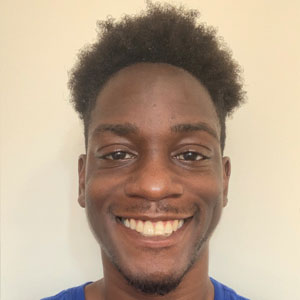 Kahlil Dozier
Kahlil Dozier
Kahlil Dozier’s research focus is networked systems with a particular interest in systems building and formal analysis. He is a first-year PhD student who will work with professors Vishal Misra and Dan Rubenstein.
Dozier has two degrees from MIT – a BS Electrical Engineering (2012) and an M.Eng Electrical Engineering (2014). He also earned an MS in computer science from the University of Southern California (USC) in 2020.
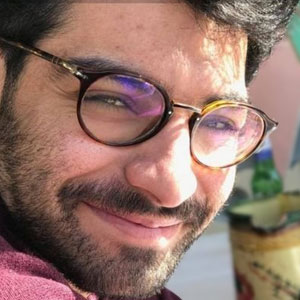 Loqman Salamatian
Loqman Salamatian
Loqman Salamatian is a first-year PhD student with the Networking group under the guidance of Ethan Katz-Bassett, Vishal Misra, and Dan Rubinstein. His main interests are in internet measurement, complex systems analysis, and information geometry. He will be working on finding new models to measure and understand the interactions between virtual and geographical space.
Salamatian is a mathematics graduate from Luxembourg University and has studied in France, Hong Kong, and Australia.
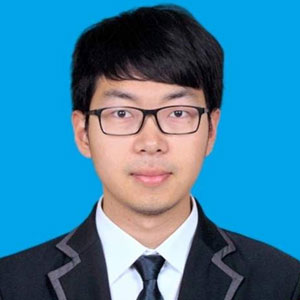 Rundi Wu
Rundi Wu
Rundi Wu is a first-year PhD student advised by Prof. Changxi Zheng. His research interests lie in computer graphics, computer vision, and deep learning, with a special focus on learning-based 3D shape modeling.
He was part of the Turing class at Peking University and graduated in 2020 with a bachelor’s degree in computer science.
Greenwoods Fellowship
The Columbia School of Engineering and Applied Sciences recognizes and supports Ph.D. students reflecting their academic achievements and clear potential for future success.
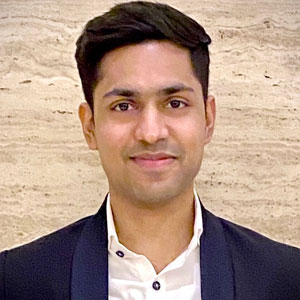 Gaurav Jain
Gaurav Jain
A first-year PhD student, Gaurav Jain works with assistant professor Brian A. Smith on human-computer interaction and computer vision applications at the Computer-Enabled Abilities Laboratory (CEAL). His goal is to build interactive systems for people with disabilities (especially blind and visually impaired people) to better experience the world around them.
Gaurav received a bachelor’s degree in computer science from Delhi Technological University in 2020 and is a recipient of the Indian Academy of Sciences’ Summer Research Fellowship in 2019.
SEAS Fellowships
The Columbia School of Engineering and Applied Sciences established the Presidential and SEAS fellowships to recruit outstanding students from around the world to pursue graduate studies at the school.
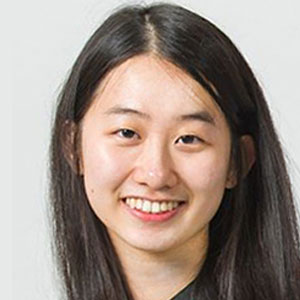 Run Chen
Run Chen
Run Chen is a first-year PhD student working with the Spoken Language Processing Group led by professor Julia Hirschberg. Her research interest lies in natural language processing and computational linguistics. She earned a silver medal from the International Linguistics Olympiad.
Chen graduated from MIT with a BS in computer science and linguistics in 2019, and an MEng in computer science in 2020.
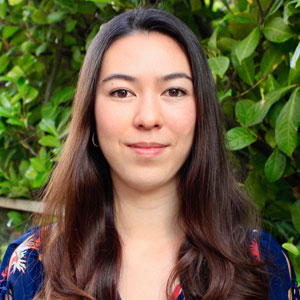 Miranda Christ
Miranda Christ
Miranda Christ is a first-year PhD student who is broadly interested in cryptography, complexity, and algorithms. She will join the theory group and will be co-advised by professors Tal Malkin and Mihalis Yannakakis.
Christ is also a Fulbright Scholar. She graduated magna cum laude from Brown University in 2020 with an Sc.B. in Mathematics-Computer Science.
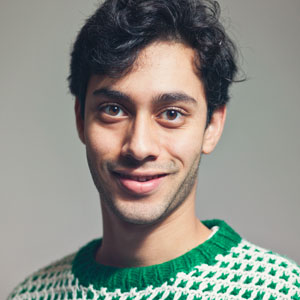 Samir Gadre
Samir Gadre
Samir Gadre‘s research interests include computer vision, robotics, interactive perception, lifelong learning, and machine learning. He is a first-year PhD student advised by assistant professor Shuran Song. While at Columbia his research will focus on object understanding, specifically on learning representations for everyday objects that are useful for downstream computer vision and robotics tasks.
Gadre graduated from Brown University with an Sc.B. Computer Science in 2018. For the past two years, he has worked as a Software Engineer at Microsoft HoloLens.
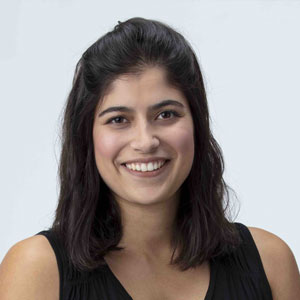 Melanie Subbiah
Melanie Subbiah
Melanie Subbiah plans to explore the different areas of Natural Language Processing (NLP) for the first year of her PhD. Subbiah will work with professor Kathy McKeown and she is interested in long-form controllable text generation, self-supervised learning, and neural networks.
In 2017, she completed a Bachelor’s in Arts and Sciences in Computer Science from Williams College.
The diverse cohort come from the various groups within the department. They are a mix of those new to Columbia and students who have received fellowships for the year.
J.P. Morgan 2019 AI Research PhD Fellowship Awards
The inaugural award supports researchers who have the skills and imagination to potentially transform the way we live and work.
Ana-Andreaa Stoica
A third-year PhD student, Ana-Andreaa Stoica works with Augustin Chaintreau on social networks and algorithmic fairness. Her work focuses on mathematical models, data analysis, and policy implications for algorithm design in social networks. Stoica graduated from Princeton in 2016 with a bachelor’s degree in Mathematics and certificates in Computing and Applied Mathematics.
2019 Google PhD Fellowship in Algorithms, Optimizations, and Markets
The program recognizes outstanding graduate students doing exceptional work in computer science and related research areas.
Peilin Zhong
A member of the Theory Group, Peilin Zhong is a third-year PhD student who is particularly interested in parallel graph algorithms, generative models, and large-scale data computational models. His goal is to design new algorithms for large-scale computational models that have more impact in machine learning, data mining, and can be used in practice. Zhong was part of the Yao Class at Tsinghua University and graduated in 2016 with a bachelor’s degree in engineering.
National Defense Science and Engineering Graduate (NDSEG) Fellowship
The NDSEG is a highly competitive, portable fellowship that is awarded to U.S. citizens and nationals who intend to pursue a doctoral degree in one of fifteen supported disciplines.
Gabriel Ryan
Gabriel Ryan is a second-year PhD student whose current research involves using deep learning to construct logical formulas for program verification and synthesis. Prior to joining Columbia for graduate studies, he worked as a software engineer developing systems for data security, robotic 3D mapping and localization, and ballistic missile defense. Ryan graduated from Swarthmore College with a B.S. Engineering and B.A. Computer Science dual degree in 2013.
Ministry of Education of Taiwan – Government Scholarship to Study Abroad
The scholarship is awarded to Taiwanese students studying abroad with exceptional academic record and potential in their research areas.
Jen-Shuo Liu
Working in professor Steven Feiner’s Computer Graphics and User Interfaces Laboratory, third-year PhD student Jen-Shuo Liu’s research focus is user interface design for augmented reality and virtual reality. Liu has gained recognition for his work including an NYC Media Lab award for an augmented reality project. He graduated from National Taiwan University with an M.S. degree in Communication Engineering in 2016 .
The Belgian American Educational Foundation (BAEF)
The BAEF fosters the higher education of deserving Belgians and Americans through its exchange fellowship program.
Basile Van Hoorick
As an MS student, Basile Van Hoorick’s interests include computer vision, machine learning, and software engineering. While at Columbia, he hopes to work as a research and/or teaching assistant. Van Hoorick was a finalist in the Flemish Mathematics Olympiad (a national mathematics competition) in 2014 and studied electrical engineering at Ghent University in Belgium where he graduated summa cum laude in July 2019.
SEAS Fellowships
Columbia School of Engineering and Applied Sciences established the Presidential and SEAS fellowships to recruit outstanding students from around the world to pursue graduate studies at the school.
Xi Chen
As part of her research project, Xi Chen is trying to predict depression based on human mobility trajectory. Her interests lie in social networks and machine learning and she is a second-year PhD student working with Augustin Chaintreau. Chen graduated in 2018 with a degree in computer science and mathematics from Carleton College.
Shunhua Jiang
Shunhua Jiang is a first-year PhD student with the Theory Group, under the guidance of Omri Weinstein and Alex Andoni. Her research interests range from data structures, lower bounds, to algorithms. An alum of Tsinghua University, Jiang graduated in 2015 with a degree in computer science.
Eric Neyman
Eric Neyman is a first-year PhD student with the Theory Group under the supervision of professors Tim Roughgarden and Rocco Servedio. He looks forward to exploring the various disciplines of theoretical computer science. Neyman has earned three honorable mentions in the Putnam mathematical competition and graduated summa cum laude from Princeton University in 2019 with a degree in mathematics.
Chang Xiao
Chang Xiao is a fourth-year PhD student in computer science who works with professor Changxi Zheng. His research focuses on building human-computer interaction systems using computational methods. He has developed methods in a range of applications and his research has attracted public interest, including media coverage from CNN, IEEE Spectrum, etc. Chang received a BS degree in computer science from Zhejiang University in 2016 and is a recipient of the Snap Fellowship in 2019.
Hengjie Zhang
Hengjie Zhang’s research interests are graph theory, algorithms, and data structure. He will join the theory group as a first-year PhD student working with Alexandr Andoni and Omri Weinstein. He won a gold medal in the International Olympiad in Informatics and a Yao Award Recognition Prize from Tsinghua University where he graduated with a degree in engineering in 2019.
Joseph Zuckerman
With the system-level design group, Joseph Zuckerman will work on heterogeneous system-on-chip architectures. He is a first-year PhD student interested in application-specific architectures, the integration of accelerators, and hardware design methodologies. Zuckerman completed a B.S. in Electrical Engineering from Harvard University in 2019, with a focus on hardware architectures for machine learning applications.
Kara Schechtman
(CC ‘19) has been selected as one of the recipients of the Senator
George J. Mitchell Scholarship Program to pursue a
one-year postgraduate degree in Ireland. The fellowship is awarded to 12 individuals between the ages of 18
and 30 by the US-Ireland Alliance.
Schechtman is headed to Trinity College Dublin where she will study philosophy.
“Artificial
intelligence is advancing and we are at a point where ethics has to be
considered,” said Schechtman, who is majoring in English and
computer science at Columbia. “I believe studying philosophy will help me
prepare for further studies in computer science.”
A point of frustration
for her has been finding an area in computer science where both the
humanities and computing overlap in a way that fits her interests. In artificial
intelligence (AI), computing and philosophical questions can overlap, an
intersection she finds fulfilling.
The development of AI poses a whole gamut of challenges to humanity, ranging from legislation challenges, to AI bias, to ethical concerns about potential machine consciousness, and even to potential existential threat. But these challenges have remained while the technical developments of AI has grown leaps and bounds.
One thing Schechtman
hopes to answer through her studies is how society can act responsibly despite
all that is unknown. “I think it also demands technical expertise to suggest
actionable paths for responsibility now,” continued Schechtman. “Which is why
it is so important for computer scientists and philosophers to work together,
and for some people to study both.”
The
Ireland location of the fellowship is also ideal. Dublin hosts the European
Union headquarters of a number of tech giants. And having double majored in
English, she looks forward to “nerding out” over Samuel Beckett and James Joyce
in their home country.
“More broadly, the circumstances couldn’t be better — the other fellowship recipients seem amazing and I can’t wait to get to know them better, Trinity College Dublin is a wonderful school, and I am sure I will have a lot of fun exploring Ireland. I’m excited to grow from the experience in ways I don’t yet even expect,” said Schechtman.
 Yiru Chen
Yiru Chen Philippe Chlenski
Philippe Chlenski Sam Fereidooni
Sam Fereidooni Shashaank N
Shashaank N Meghna Pancholi
Meghna Pancholi Clayton Sanford
Clayton Sanford Sky Wang
Sky Wang Joseph Zuckerman
Joseph Zuckerman Sebastian Salazar
Sebastian Salazar  Huy Ha
Huy Ha Yun-Yun Tsai
Yun-Yun Tsai Anjali Das
Anjali Das

 Juan D. Correa
Juan D. Correa Emily Allaway
Emily Allaway Vivian Liu
Vivian Liu Sachit Menon
Sachit Menon Shyamal Patel
Shyamal Patel Abhishek Shah
Abhishek Shah Evgeny Manzhosov
Evgeny Manzhosov
 Keyon Vafa
Keyon Vafa Chang Xiao
Chang Xiao Kahlil Dozier
Kahlil Dozier Loqman Salamatian
Loqman Salamatian Rundi Wu
Rundi Wu Gaurav Jain
Gaurav Jain Run Chen
Run Chen Miranda Christ
Miranda Christ Samir Gadre
Samir Gadre Melanie Subbiah
Melanie Subbiah